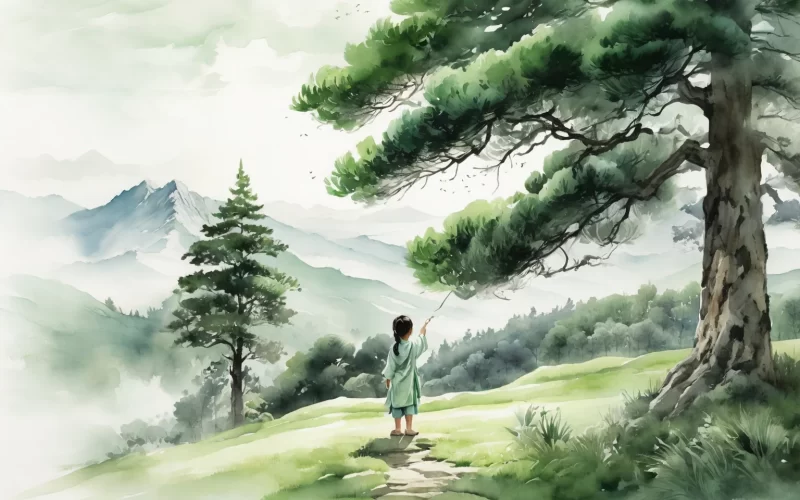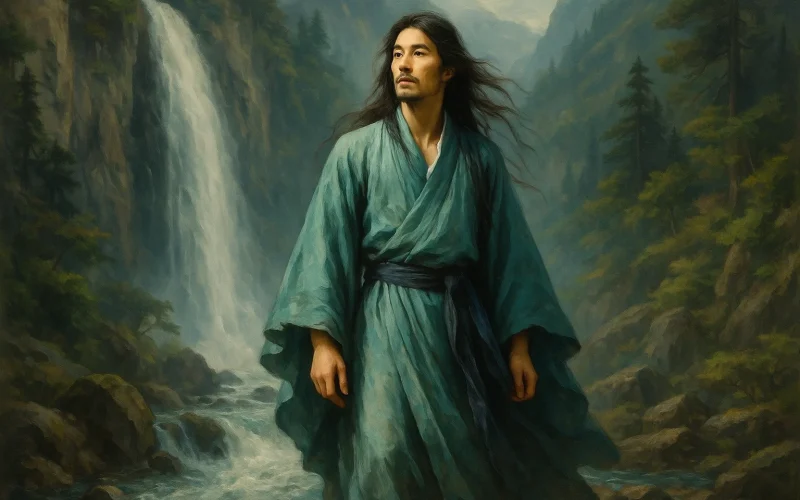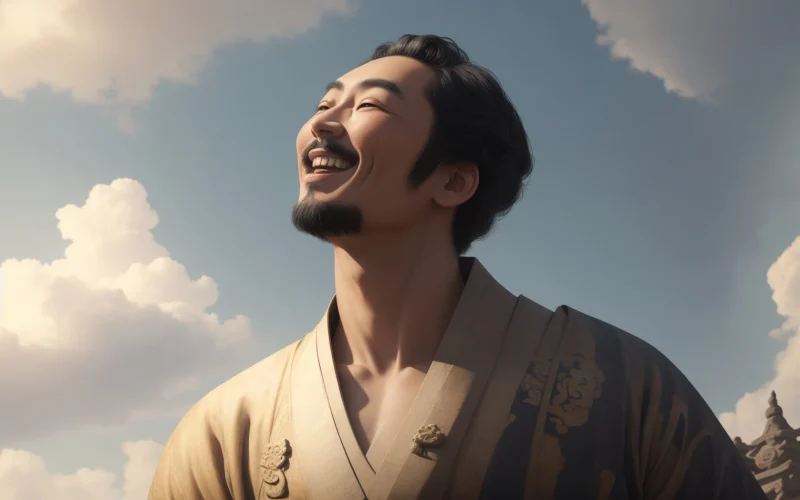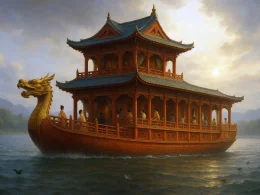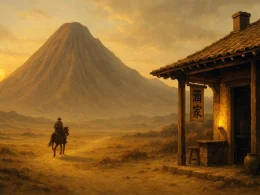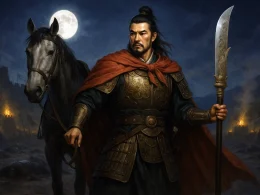When I questioned your pupil, under a pine-tree, " My teacher," he answered, " went for herbs, But toward which corner of the mountain, How can I tell, through all these clouds? "
Original Poem
「寻隐者不遇」
松下问童子,言师采药去。
只在此山中,云深不知处。
Interpretation
This poem was composed by Jia Dao during the Tang Dynasty, a time of heightened social tensions, political corruption, regional warlordism, and frequent wars. Talented individuals found it difficult to realize their ambitions, and many chose to retreat from the world. Jia Dao often expressed his emotions through landscapes in his poetry and frequently interacted with hermits, Taoists, and monks. This poem was written when the poet visited a hermit but failed to meet him, capturing the scene and revealing his longing for a reclusive life and his frustration with reality.
First Couplet: “松下问童子,言师采药去。”
Sōng xià wèn tóng zǐ, yán shī cǎi yào qù.
Under the pine tree, I ask the young disciple; he tells me his master has gone to gather herbs in the mountains.
The poet arrives under a pine tree and inquires about the hermit's whereabouts. The disciple replies that his master has gone deep into the mountains to gather herbs. This exchange not only shows the poet's admiration for the hermit but also hints at the hermit's reclusive and peaceful lifestyle, detached from worldly concerns.
Second Couplet: “只在此山中,云深不知处。”
Zhī zài cǐ shān zhōng, yún shēn bù zhī chù.
He is somewhere in this vast mountain, but the clouds are so thick that his exact location is unknown.
The disciple's response deepens the poem's imagery. Although the hermit is not far away, the dense clouds make it impossible to find him. This not only depicts the deep and misty mountain scenery but also symbolizes the hermit's transcendence and detachment, evoking admiration and longing.
Overall Appreciation
This poem is concise yet profound, using only twenty characters to paint a vivid picture of a visit to a mountain hermit. The poem unfolds through a question-and-answer format, progressing layer by layer. It begins with the poet's inquiry, deepens with the disciple's response, and culminates in the line "the clouds are so thick that his exact location is unknown," heightening the sense of disappointment at not finding the hermit. The misty clouds in the mountains are not only a natural scene but also symbolize the hermit's mystery and the poet's own sense of confusion. Although the poem does not directly express the poet's emotions, it subtly conveys his longing for a reclusive life and his frustration with reality.
Writing Characteristics
- Question Implied in Answer, Layered Progression: The poet omits his own question, allowing the reader to infer it from the disciple's response, making the poem more含蓄 (subtle) and隽永 (lasting in meaning).
- Scene and Emotion Intertwined, Blending Reality and Imagination: "The clouds are so thick that his exact location is unknown" is both a realistic depiction of the scenery and a symbol of the poet's yearning for the hermit's life, enhancing the poem's意境美 (aesthetic of imagery).
- Concise and Subtle, Lingering Resonance: With only twenty characters, the poem incorporates the poet's sincere emotions, the beauty of the mountain scenery, and the regret of not meeting the hermit, leaving readers with endless reflections.
Insights
This poem not only depicts the deep and tranquil scenery of the mountains but also conveys a transcendent, reclusive spirit. In a chaotic world, some choose to retreat to the mountains, living a life detached from worldly concerns. Although the poet longs for such a life, he ultimately cannot find it, reflecting his inner conflict and helplessness. This invites us to consider that while the challenges of reality may be difficult to change, spiritual solace can provide some comfort.
Poem translator
Kiang Kanghu
Jia Dao (贾岛), 779 - 843 AD, was a native of Daxing, Beijing. He was a monk in his early years, and later traveled to the eastern capital, where he was recognized by Han Yu and returned to secularism. Jia Dao's poems were mostly about the scenes of loneliness and sadness, and he was famous for his bitter poems at that time.






